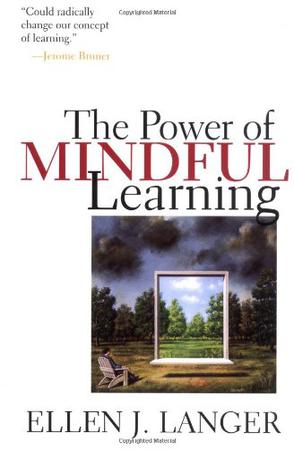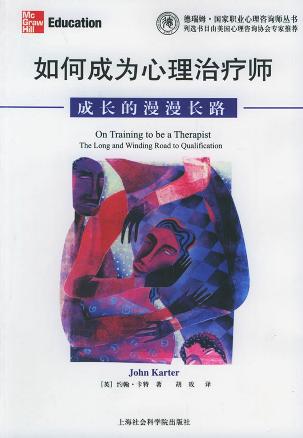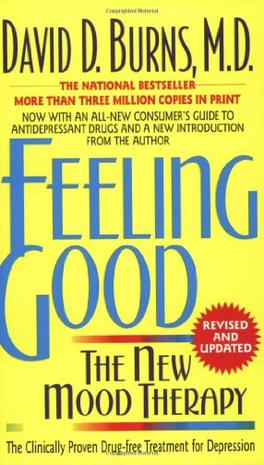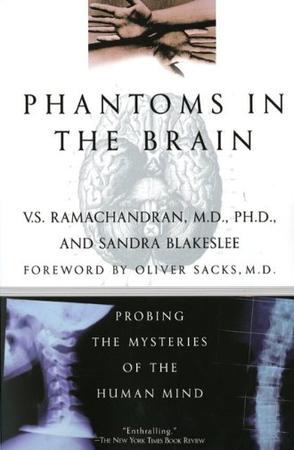-

心理学职业发展之路
《心理学职业发展之路》每一章的作者都是他所在行业中的优秀人士,他们的经验和见解可以指导读者的职业发展和所需的训练,并为在21世纪建立一份心理学事业做准备。每一章都提供了对某个特定的心理学职位的深入观察,包括:领域概览;雇佣环境;职业责任和预期;特定的一日和一周活动;以及优势和劣势。 -

The Power of Mindful Learning
Presents the concept of mindful learning, that is the continuous creation of new categories, openness to new information, & an implicit awareness of more than one perspective. Paper. DLC: Learning. -

如何成为心理治疗师
早在自己求学阶段,作者就注意到心理咨询学员所面临的各种各样的、巨大的压力,学员们因得不到应有的支持而常常显得困惑和无助。作者尝试着从学员的“角度”,探索这些专业的、个人的困难、焦虑、情感困惑和缺陷,及其对学员所造成的独特的、使人动摇的过程。 学员们常常为专业学习、实习、督导课程以及个人心理治疗所淹没,不得不周旋于学校、家庭和工作之中,经常感到筋疲力尽。本书的目的就是为了帮助学员学会控制和改善这些学习中存在的要求和困难,强调了这样一个事实:心理治疗学习本身可以成为、也应该成为一个令人愉快的、硕果累累的过程。 《如何成为心理治疗师》一书设计用来作为所有阶段培训课程的标准教科书。主要针对心理治疗和心理咨询的学员,同时,也适用于希望以不同的角度看待问题的持证从业人员、教师和督导老师。 -

Feeling Good
在线阅读本书 Book Description The good news is that anxiety, guilt, pessimism, procrastination, low self-esteem, and other "black holes" of depression can be cured without drugs. In Feeling Good, eminent psychiatrist, David D. Burns, M.D., outlines the remarkable, scientifically proven techniques that will immediately lift your spirits and help you develop a positive outlook on life. Now, in this updated edition, Dr. Burns adds an All-New Consumer's Guide To Anti-depressant Drugs as well as a new introduction to help answer your questions about the many options available for treating depression. - Recognise what causes your mood swings - Nip negative feelings in the bud - Deal with guilt - Handle hostility and criticism - Overcome addiction to love and approval - Build self-esteem - Feel good everyday Book Dimension length: (cm)17.1 width:(cm)10.6 -

心理咨询师手册
◇帮助巩固个人的学习和成长 ◇有助于咨询理论、咨询实践和个人体验的整合 ◇为咨询师之间的对话和共同探索提供了舞台 《心理咨询师手册》无论对于学员、培训师、督导抑或寻求继续发展的资深从业人员都是不得多得的宝贵资源。该书促进了咨询文治的整合,强调所有心理治疗中相关的及独自的维度,既能与其他咨询教材相结合,也能作为一本独立的著作。 -

Phantoms in the Brain
Neuroscientist V.S. Ramachandran is internationally renowned for uncovering answers to the deep and quirky questions of human nature that few scientists have dared to address. His bold insights about the brain are matched only by the stunning simplicity of his experiments -- using such low-tech tools as cotton swabs, glasses of water and dime-store mirrors. In Phantoms in the Brain, Dr. Ramachandran recounts how his work with patients who have bizarre neurological disorders has shed new light on the deep architecture of the brain, and what these findings tell us about who we are, how we construct our body image, why we laugh or become depressed, why we may believe in God, how we make decisions, deceive ourselves and dream, perhaps even why we're so clever at philosophy, music and art. Some of his most notable cases: A woman paralyzed on the left side of her body who believes she is lifting a tray of drinks with both hands offers a unique opportunity to test Freud's theory of denial. A man who insists he is talking with God challenges us to ask: Could we be "wired" for religious experience? A woman who hallucinates cartoon characters illustrates how, in a sense, we are all hallucinating, all the time. Dr. Ramachandran's inspired medical detective work pushes the boundaries of medicine's last great frontier -- the human mind -- yielding new and provocative insights into the "big questions" about consciousness and the self.